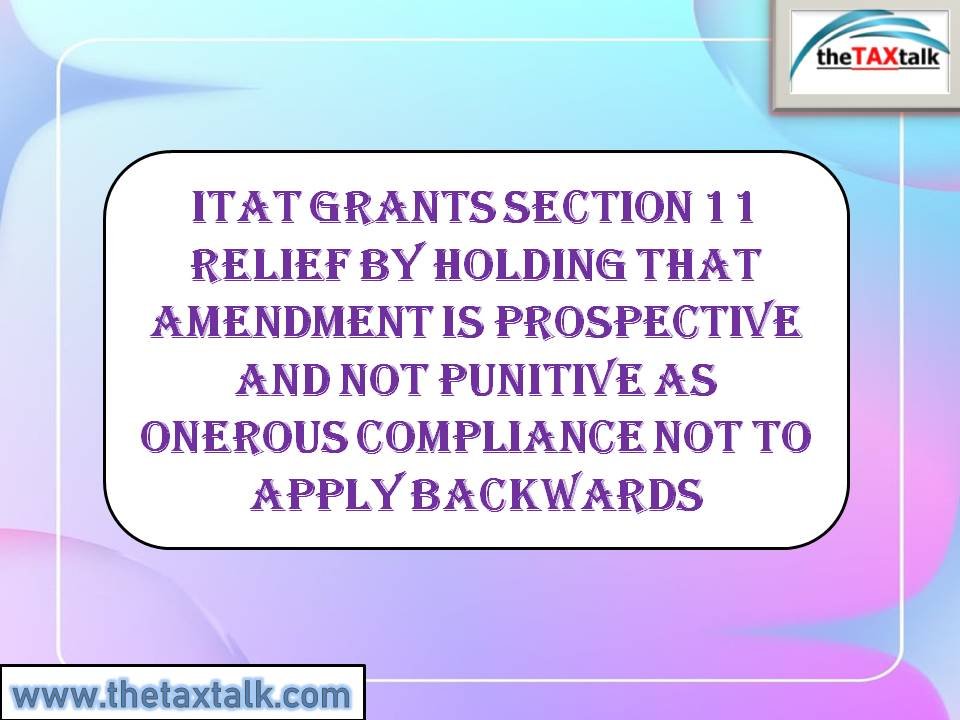![]()
ITAT grants Section 11 relief by holding that amendment is prospective and not punitive as Onerous compliance not to apply backwards
In a decisive and well-reasoned ruling, the ITAT Bangalore allowed the appeal of Karnataka Chinmaya Seva Trust for AY 2016–17, directing the Assessing Officer to grant the exemption under Section 11 as claimed. The assessee, a trust registered under Section 12A since 20.12.1985 and approved under Section 80G, had filed its return of income belatedly under Section 139(4) on 18.01.2018 along with the audit report in Form 10B dated 12.01.2018. The exemption was denied by the AO solely on the ground that the return and audit report were not filed “within the due date,” relying on clause (ba) inserted in Section 12A(1) by the Finance Act, 2017. However, the Tribunal categorically held that the said clause was a new condition, not Clarificatory in nature, and would apply only from AY 2018–19, as per the explanatory memorandum and CBDT Circular No. 02/2018 dated 15.02.2018. It further relied on the Apex Court decision in CIT v. Vatika Township (P) Ltd. (2014) 367 ITR 466 to hold that retrospective application of onerous provisions is impermissible.
Noting that the audit report was “available before the Assessing Officer well before the assessment proceedings commenced,” the Tribunal found the procedural default condonable in view of CBDT Circular No. 10/2019 dated 22.05.2019.
It reaffirmed that “filing of audit report is a substantive requirement but not the mode and stage of filing,” which is procedural. Since the return was assessed under Section 143(3) and was not defective under Section 139(9), the Tribunal concluded there was “no justification to deny the exemption claimed.” The appeal was allowed in full, restoring the assessee’s rightful benefit and upholding the supremacy of substantial justice over technical considerations.
The copy of the order is as under:


